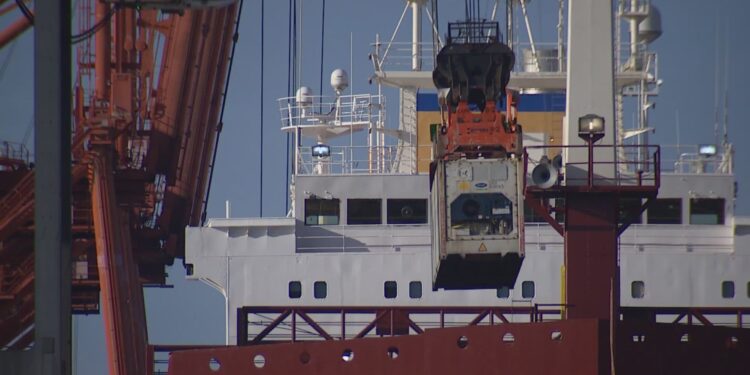A steep decline in shipping activity at the ports of Seattle and Tacoma is raising concerns among Washington’s business community, as tariffs take a growing toll on trade.
For the week ending July 25, the Northwest Seaport Alliance, the body managing both ports, reported international imports had dropped 25.9% compared to the same week last year, and were down 24.5% from the prior week. Alliance co-chair and Port of Seattle Commission president Ryan Calkins said the slowdown jeopardizes local businesses that depend on a steady flow of goods in and out of the region.
He explained that reduced import activity also limits outbound shipping opportunities for Washington exporters. With retaliatory tariffs already straining profit margins, the situation could worsen. According to Calkins, containerized consumer goods such as televisions and clothing are the main revenue drivers for shipping companies, and when those goods slow to a trickle, it becomes harder to move the state’s agricultural exports.
He noted that the impact of tariffs will be felt directly by residents, pushing prices on many goods up by roughly 20%. The extra cost isn’t borne by overseas manufacturers, he added, but by American consumers, with price hikes passed from wholesalers to retailers and, ultimately, to shoppers.
Seattle’s interim Chief Economist, Jan Duras, echoed the warning earlier in the week, calling the new tariffs from the Trump administration the city’s most significant economic threat. Duras projected a $143 million revenue shortfall tied to the duties, in addition to slowing sales tax growth, reduced office space demand, a construction cooldown, and a forecasted 27% decline in international visitors.
Tourism is also under pressure. Data from Oxford Economics in June indicated Canadian travel to the Seattle area could drop 18% between 2024 and 2025, the steepest fall among overseas markets, with overall international tourism potentially declining by more than a quarter.
The latest tariff package, which took effect Thursday, levies duties of 10% or more on imports from dozens of countries and the European Union. Goods from the EU, Japan, and South Korea now face 15% tariffs, while products from Taiwan, Vietnam, and Bangladesh are taxed at 20%.







